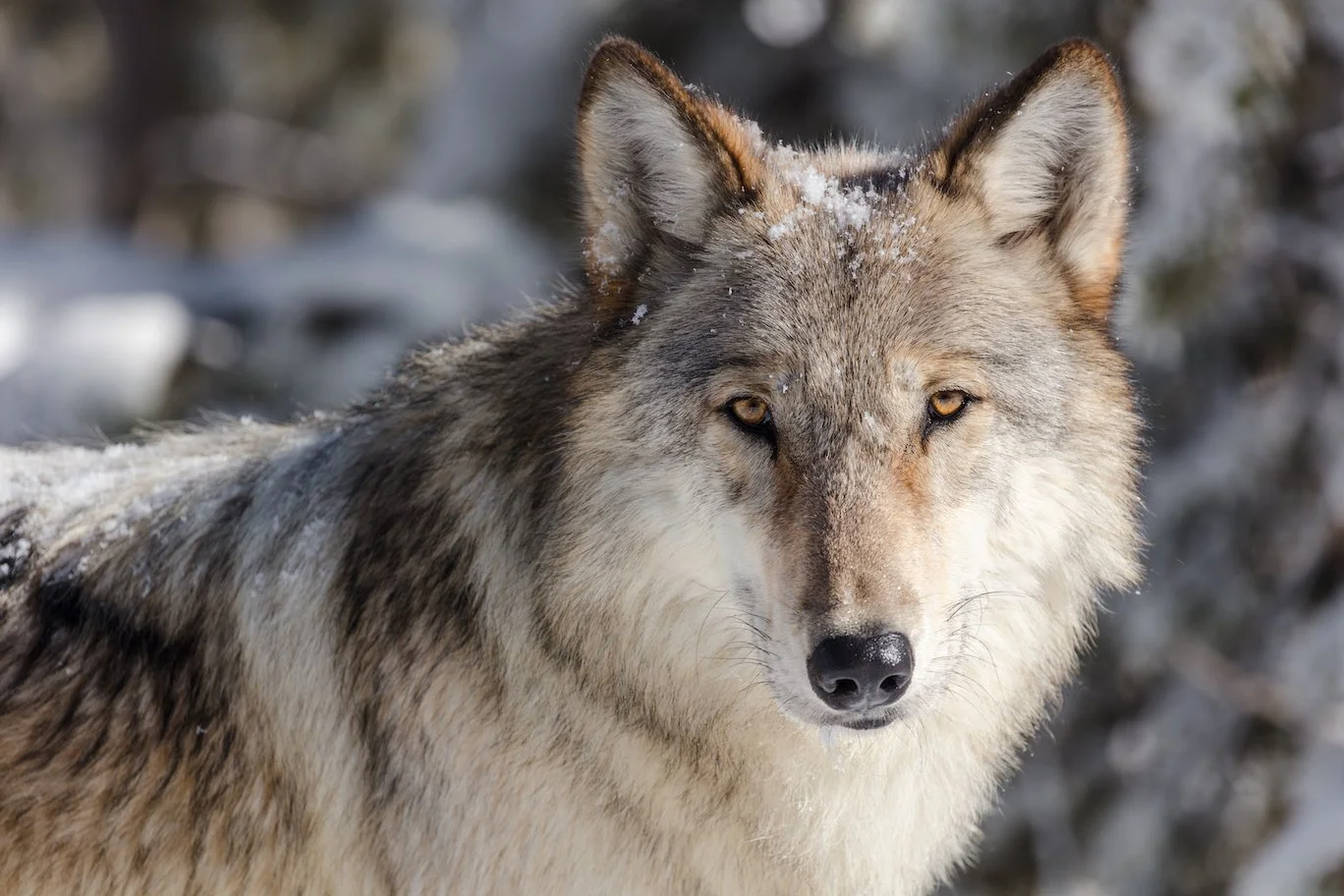The best time to study wolves is deep in winter when most of Yellowstone National Park is closed. Follow five women and their wildlife biologist guide as they braved the cold for The Exploring Women’s Winter Wolf trek.
Read MoreNeither COVID nor a hip replacement could keep this photographer from following his heart to Africa and the mountain gorilla’s of Bwindi Impenetrable Forest. Larry Blau found elephants, lions, rhinos and birds, discovered the gerenuk, and met a silverback. And he found time to write home about it all.
Read MoreWhen federal Endangered Species protection was removed from grey wolves, five states immediately reinstated seasonal wolf hunts. By February 2021, less than halfway through the hunting season, 24 Yellowstone wolves had been killed. In the same month, a judge reinstated protection, but exempted Yellowstone’s home state and three border states, exactly where the wolves are being killed. Why are wolves being hunted and what can we do to stop the killing?
Read MoreYellowstone National Park and the Grand Teton Mountains have a secret treasure: wildflowers. Hundreds of varieties of flowers bloom along the roads and paths, and among the trees and in the clearings and grasslands creating great swaths of jewels-tone blossoms. Wildflower lover Jovial Lewis introduces us to a few of her favorite wildflowers in the Yellowstone - Grand Teton ecosystem.
Read MoreKissed by both the Atlantic Ocean and by the Caribbean Sea, it is the beaches on the island’s 300 miles of beautiful coastline that usually bring visitors. But Puerto Rico is more than sunbathing and mega-resorts. Puerto Rico has 17 endemic bird species, eighteen if you count the Bananaquit (Coereba flaveola) about whom debate rages. Plus another 330+ species migrants, introductions, and accidentals. This is a birder's paradise. Hurricane Maria made a mess of Puerto Rico in 2017, flattening the vegetation as well as the buildings. But nature is amazing. The rainforest and wildlife are rebounding in miraculous ways.
Read MoreBefore there was an Everglades National Park, there was Everglades, the ecosystem. This Everglades has been around for 5,000 years! The Greater Everglades Ecosystem is a region of tropical wetlands beginning at the headwaters of the Kissimmee River, draining into Lake Okeechobee, and finally spilling fresh water to Florida Bay. This once vast, shallow, and free-flowing river of grass has been exploited, polluted, and drained for decades, threatening Florida’s water supply and its amazing biodiversity. The Everglades are home to the highly endangered Florida panther and Florida mink, to black bear and bob cat, to both alligator and crocodile, and a plethora of migratory and resident birds. Today, Floridian’s are fighting to restore the Everglades. Unique in the world, there is no other place on Earth like the Everglades. The Everglades is a place not to miss.
Read MoreThe charismatic grizzly bears of the Grand Teton are beloved worldwide, but feeding and other irresponsible behavior by humans are putting them at risk for euthanasia. Can grizzly 399, and Felicia and their offspring survive human bad behavior? An interview with Friends of the Grand Teton by wildlife photographer, Jorn Vangoidtsenhoven.
Read MoreCapturing the image of a huge, powerful moose with full antlers is an image any wildlife photographer would love to have - but how do you get that photograph? Wildlife photographer, Jorn Vangoidtsenhoven shares his favorite techniques, equipment, locations, and secrets for taking great moose photographs in Grand Teton National Park.
Read MoreVisiting Antarctica is a dream for many people. Although this frozen, southernmost point of the earth may be devoid of humans, it supports a fantastic array of life, including eight penguin species, seals, sea and land birds, and whales. However, photographer Larry Blau found out that Ushuaia, Deception Island, and the notorious Drake Passage make getting there half the adventure.
Read MoreUpdated 2021. Only three hours from Manhattan, snowy owls, endangered short-eared owl, and a host of hawks winter in small town Fort Edward, New York. New York’s Washington County Grasslands are an Audubon listed IBA (Important Bird Area), a great weekend wildlife photography, birdwatching escape. and one of my favorite places in New York State.
Read MoreIn Yellowstone’s Lamar Valley, a life-and-death drama plays out in front of Mark Seth Lender’s eyes. Was the huge, stately elk caught unawares? How was one so perfect be caught? Will it survive? Are wolves killing for sport? Or did the wolves understand something the human eye could not perceive? Wolf expert Dave Mech explains to Mark and us what the wolves already knew.
Read MoreBison! Everyone knows the best place to photograph the iconic American plains bison is Yellowstone National Park. But that is exactly the problem. Jorn Vangoidtsenhoven shares his favorite lens secrets plus when to go and where to head in Yellowstone to get the best bison shots. When the spring babies are growing up and the exciting fall rut is months away this wildlife photographer’s lens turns toward - BISON!
Read More











